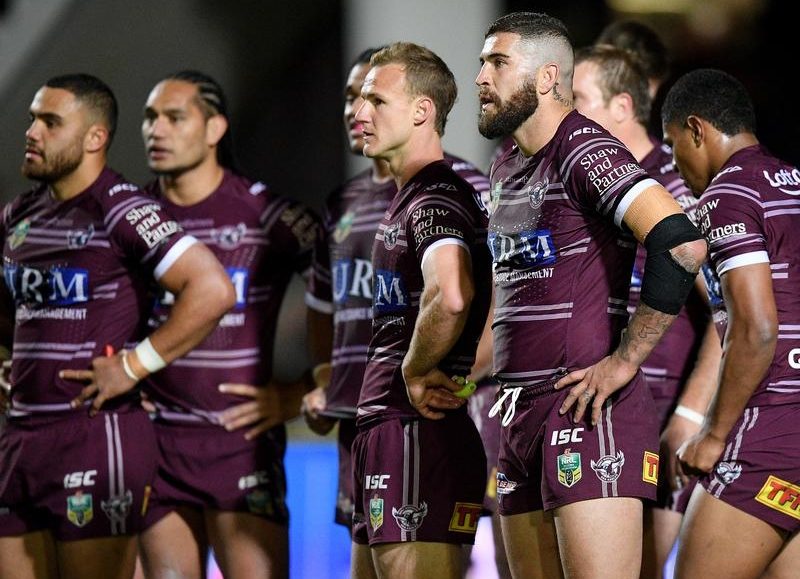
Manly have failed in their attempt to be cleared of salary cap cheating after being knocked back by the NRL appeals committee.
The NRL’s punishment against the Sea Eagles will stand after the committee, headed by Ian Callinan QC, supported the NRL’s determination that the club had illegally guaranteed third party agreements.
The Sea Eagles appealed the NRL’s sanctions after they were hit with a $750,000 fine in March and had $330,000 stripped off their salary caps for 2018 and 2019.
The club said they would not take the issue any further despite having further avenues for appeal.
“While the club felt it had strong grounds for appeal the finding from the determination and appeal committee is that they believe that the club contravened rule 26 of the PCR (player contract and remuneration) rules by making commitments to procure TPAs (third part agreements), that it wrongly failed to disclose in the playing contracts and those TPAs that were disclosed were not at arm’s length,” the club said in a statement.
“While additional appeal options lay open to it, the club has confirmed that in the interests of allowing its members, players, sponsors and fans the opportunity to move forward, the club will now focus on its 2019 and beyond seasons.”
The ruling caps a horror year for the Sea Eagles, who missed the finals series.
Coach Trent Barrett’s future was under constant scrutiny after he fell out with management over resources while an altercation at a Gladstone strip club ultimately resulted in utility Jackson Hasting’s ugly exit.
Manly chief operating officer Neil Bare and former chief executive officer Joe Kelly were also suspended until January 1 next year as a result of the NRL’s investigation.
The club was found to have offered to facilitate third party agreements which were subsequently not disclosed in their contracts, or included in the club’s salary caps.
Under NRL rules, all third party agreements between players and sponsors must be made at arm’s length from the club.
The appeals committee found that it had offered TPAs to 11 players over a five-year period.
However, it found there was insufficient evidence to support the NRL’s finding that one player had been offered a TPA worth $25,000 over two years.




